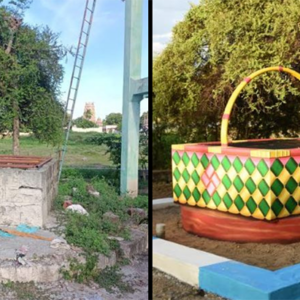
Antonio Vincente has made forest restoration his life work and legacy. Now nearly 85 years old, Vincente has spent the last 40 years planting over 50,000 trees on his 31 hectare patch of land in the Serra da Mantiqueira mountain range of São Paulo, Brazil. He expresses his mission for future sustainability: “I didn’t do it for money, I did it because when I die, what’s here will remain for everyone…”
Vincente grew up on a small farm in the southeastern state of São Paulo with thirteen brothers and sisters. He remembers his father’s work cutting down the trees for use in charcoal production and to clear the land for cattle grazing. As the land was stripped, so the water resources began to dry up.
The relationship between trees and natural water sources is crucial to the ecosystem. As explained by American Forests, trees collect and filter rainfall and slowly release it. Rich forest soil also filter sediments and pollutants from water before it reaches streams, lakes or rivers. Vincente estimates he has recovered eight waterfalls by re-planting and cultivating trees.

Vincente tells his tale in an interview, “In 1973 when I was brought here, this was all cattle pasture. The water springs dried up and never returned. So what did I do? I left the countryside to go to the city. I worked very hard to buy this land, and I started replanting. And then the water springs started coming back. Today I have 76.7 acres of land here, all reforested with native plants.”
Deforestation in Brazil is now more critical than ever. The rate of forest loss in Brazil increased last year by almost 30%, with 7,989 square kilometers destroyed between August 2015 and July São Paulo is especially dire. A study by SOS Atlantic Forest Foundation and INPE reported that Atlantic forest originally covered 69% of São Paulo state, however only 14% of this total remains.
The forests in Brazil provide more than water. The forestry sector contributes tens of billions of dollars annually to Brazil’s GDP. With an economy in crisis, the government is realizing the importance of preserving the country’s natural resources. In 2015, the Brazilian government pledged to plant 12m hectares (29.6m acres) of deforested land by 2030, as part of the Bonn challenge— “a global effort to restore 150 million hectares of the world’s deforested and degraded land by 2020 and 350 million hectares by 2030”.
“If everyone followed Vicente’s example, our task would be a lot easier,” says Rodrigo Medeiros, vice president of Conservation International Brazil, “The scale of restoration that we are dealing with here is unprecedented in the history of Brazil. Without forests, water, food and a pleasant climate are basically not possible.”


